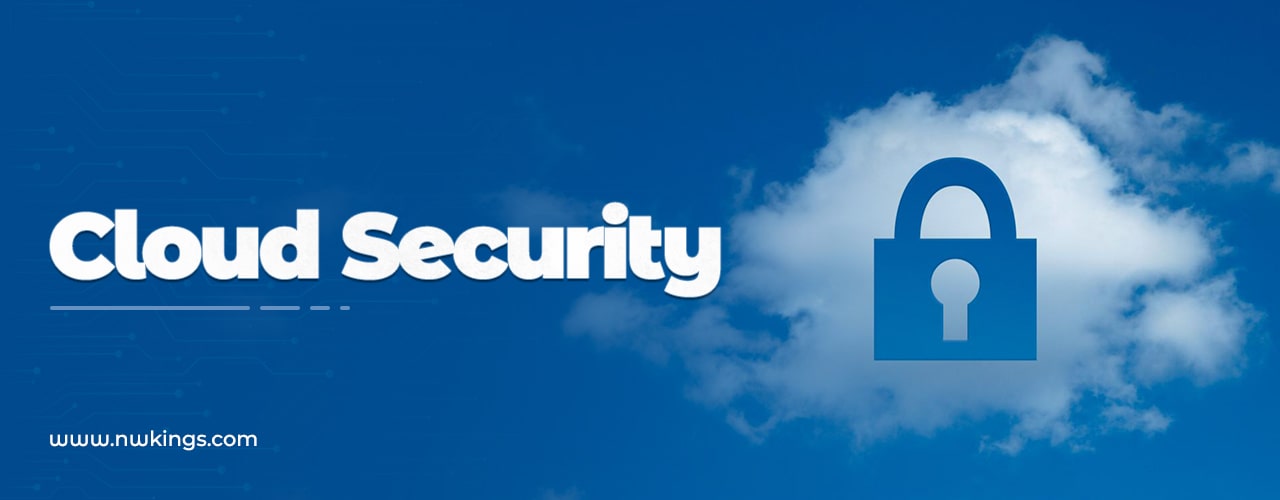
Cloud computing has become a revolution in the contemporary era, and the benefits of cloud computing are enormous, from cost-saving to flexibility and scalability. Increasing cyber-attacks and data breaches have made cloud computing more critical. In this blog, let’s discuss cloud security and learn to earn cloud security challenges.
Hence, keep reading the blog till the end to get familiar with the concepts in detail and become an asset to the IT industry.
What is cloud security?
Cloud security refers to the measures taken to protect cloud computing environments from unauthorized access, data breaches, and other cyber threats. It also involves a set of technologies, policies, and procedures that work together to secure cloud data, applications, and infrastructure.
What is the importance of cloud security?
Cloud security is crucial since it protects sensitive data from cyber threats like – data breaches, theft, and ransomware attacks and ensures compliance with industry and government regulations. It improves security by making it less vulnerable to cyber attacks.
What are the benefits of cloud security?
The benefits of cloud security are as follows-
- It reduces the risk of cyber attacks, data breaches, and other security incidents.
- It improves the availability and reliability of cloud services, ensuring that businesses can operate without interruption.
- It enables businesses to store, manage, and process their data securely, reducing the risk of data loss or corruption.
- It provides a competitive advantage, as businesses that can demonstrate strong cloud security measures are more likely to win the trust and confidence of customers and stakeholders.
What are the challenges in cloud security?
The prominent challenges in cloud security are as follows-
- Data Breaches
Cloud data breaches can result in the theft or unauthorized access to sensitive data, such as financial information, Personal Identifiable Information (PII), or intellectual property.
- Insider Threats
Malicious or negligent insiders can abuse their privileges and access to steal or leak sensitive data, alter or delete files, or deploy malware within the cloud environment.
- Misconfiguration
Improperly configured cloud resources can lead to vulnerabilities and expose sensitive data to unauthorized access.
- Inadequate Access Controls
Poor access controls can lead to unauthorized access, modification, or deletion of data and other security risks like the creation of shadow IT.
- Compliance
Ensuring compliance with relevant regulations, such as GDPR or HIPAA, can be challenging due to the complexity of cloud environments.
- Identity and Access Management (IAM)
Managing identities, roles, and permissions across multiple cloud services and applications can be complex, increasing the risk of unauthorized access and data breaches.
- Encryption and Key Management
Ensuring data and keys are secure can be challenging in cloud environments, increasing the risk of data theft.
- API Security
APIs are critical components of cloud applications, and securing them is essential to prevent attackers from exploiting vulnerabilities to gain unauthorized access or execute malicious code.
- Availability and Resilience
Ensuring cloud services are available and resilient to DDoS attacks, outages, and other disruptions is a challenge in cloud security.
- Incident Response
Responding to security incidents in the cloud can be complex due to the distributed nature of cloud environments, requiring specialized skills and tools to detect and respond to threats.
How to learn to earn cloud security challenges?
To learn to earn cloud security challenges, we need to keep a check on the following points-
- Understand cloud security fundamentals
It’s vital to have a solid understanding of cloud security fundamentals, including knowledge of various security threats, vulnerabilities, and risk management strategies.
- Staying updated on the latest cloud security trends
It’s vital to stay updated on the latest trends and developments, which one can achieve through reading industry bulletins, attending conferences, and joining relevant online communities.
- Learning how to use cloud security tools
One must learn to use vulnerability scanners and penetration testing tools to identify and address security vulnerabilities.
- Gaining hands-on experience with cloud security
One of the best ways to learn cloud security is through hands-on experience. Consider setting up your cloud environment or participating in capture-the-flag challenges to gain practical experience with cloud security.
- Earning cloud security certifications
Earning cloud security certifications demonstrate your knowledge and expertise.
- Network with other cloud security professionals
Networking with other cloud security professionals can help you stay updated on the latest trends and developments and provide opportunities for career advancement.
What are the courses available to learn cloud security?
The courses available to learn cloud security are as follows-
- Cloud Security Program
The program comprises Azure 700 and Azure 500 and covers the fundamental understanding of cloud security and advanced security features.
- Cloud Network Security Program
The program comprises Fortinet NSE 4 & NSE 7, and Microsoft Azure courses 104, 700, and 500, which cover a deep understanding of cloud security and skills required to secure cloud networks.
Where can I get the training for the best cloud security courses?
To get the best cloud security courses, reach out to Network Kings, which has shaped the career of around 10,000+ students in IT.
Network Kings is an online ed-tech platform believing in student-oriented training where the learners learn directly from the engineers and get 24*7 access to the world’s biggest virtual labs with zero downtime.
What are the job opportunities after receiving cloud security certification?
The top job opportunities after receiving cloud security certification are as follows-
- Cloud Security Engineer
- Cloud Security Architect
- Cloud Security Analyst
- Cloud Security Consultant
- Cloud Security Specialist
- Cloud Security Manager
- Cloud Security Auditor
- Cloud Security Administrator
- Cloud Security Operations Engineer
- Cloud Security Officer
- Cloud Security Compliance Analyst
- Cloud Security Risk Analyst
- Cloud Security Governance Manager
- Cloud Security Trainer
- Cloud Security Sales Specialist
- Cloud Security Product Manager
- Cloud Security Researcher
- Cloud Security Incident Response Analyst
- Cloud Security Penetration Tester
- Cloud Security Forensic Analyst
What are the salary packages after completing the cloud security course?
The salary package after completing the cloud security course in different countries is as follows-
- United States: $80,000 – $160,000
- United Kingdom: £50,000 – £90,000 GBP
- Canada: CAD 80,000 – CAD 140,000
- Australia: AUD 90,000 – AUD 160,000
- Germany: €55,000 – €100,000 EUR
- France: €45,000 – €85,000 EUR
- Singapore: SGD 60,000 – SGD 120,000
- United Arab Emirates: AED 180,000 – AED 300,000
- India: INR 600,000 – INR 1,500,000
- Japan: ¥7,000,000 – ¥12,000,000 JPY
Wrapping Up!
The demand for career building in cloud security has been evolving since the advancement of the cloud emerged. Therefore, proper security measures must be taken to secure businesses from data breaches and malfunctions.
Enroll today in the given courses and get a demo worth $50 from industry experts for free and fee free to leave any feedback in the box below.
Happy Learning!


